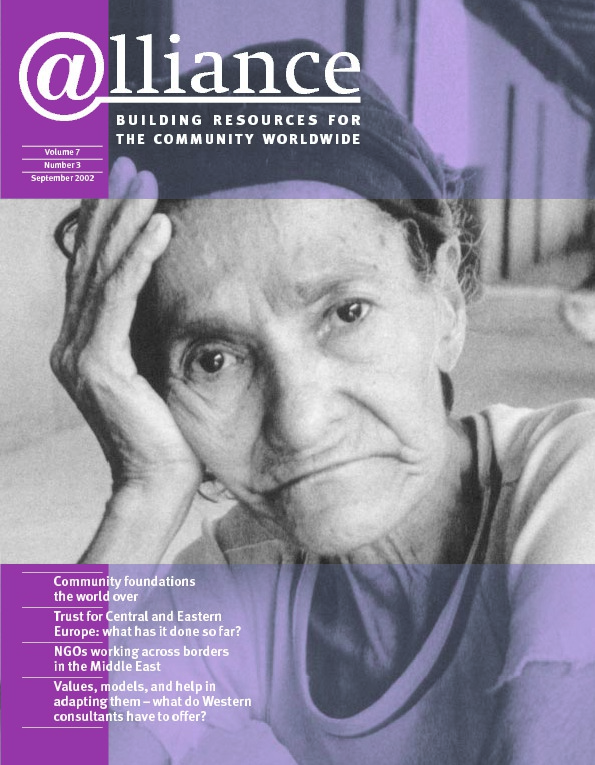The Mott Foundation made its first grantmaking forays into Central and Eastern Europe (CEE) and Russia in the early 1990s. We quickly recognized that it was not enough to support information provision, training and other services for NGOs and citizen groups. There was a great need for increased citizen participation and engagement in communities throughout the region, and we needed to find ways of encouraging this in order to sustain this movement.
Supporting the growth and development of emerging, community-based philanthropy organizations (CPOs) proved a promising way of doing this. Unlike in the US, where the Foundation’s support has focused mostly on community foundations, in CEE/Russia we take a broader approach and support a wide range of CPOs that are stimulating citizens to give time and money to their communities.
A catalyst for local engagement
Initially, the Foundation provided direct support to these emerging organizations. But one of the lessons we learned is that local CPOs need to unlock resources within the community, both financial and human. They should be a catalyst for greater participation and engagement, not simply a vehicle for getting money into a community to meet certain needs. Mott and other funders working in this area can provide support, but the emphasis needs to be on local resources. Providing matching funds or challenge grants has shown promising results. Where the Foundation has actually fronted the funds for CPOs without requiring a local match, local support has been slower to materialize.
Mott also provided direct support to community philanthropy regranting programmes in certain countries of CEE/Russia; but again, without a matching requirement, this does not always stimulate local resources. This is not to say that supporting a local regranting programme is not a good strategy for addressing a problem or issue in society – it can be. However, it is a different strategy from supporting the development of community philanthropy.
Endowment-building
We also learned that in CEE/Russia endowment-building should not be the focus in the short term. Focusing immediately on an endowment, without concentrating on building a solid track record as a grantmaking organization, can damage the reputation of the organization from the beginning. CPOs need to build trust in the communities they serve, and doing something that improves the community as soon as possible is important. Nor is the legal and fiscal climate in many countries conducive to endowment-building. In any case, the needs are so immediate in many countries that it is often difficult to justify putting money away for the future.
Supporting the support organizations
As the field developed and as CPOs emerged in greater numbers and diversity, the Foundation began to target national and regional support organizations and other initiatives promoting community philanthropy on a wider scale. Support organizations that provide technical assistance, training, and other services to local CPOs are essential. They stimulate the development of CPOs and take international community philanthropy models and translate them to the local circumstances. They act as conduits for information and networking opportunities and advocate for the growth of community philanthropy at the national level. As in the US, the Foundation cannot work in each and every community across CEE/Russia. Supporting community philanthropy development at the national and regional levels thus gives larger foundations like Mott an alternative way to support community philanthropy at the local level and help to build strong communities.
The final lesson we learned is that support for community philanthropy development should be long term and should build upon local traditions and capacities. What works in Poland may not work in Russia; therefore, it is essential that CPOs develop in response to the local conditions and cultures. Also, a large amount of money pumped quickly into a programme does not produce lasting results. Outside funders need to approach this field carefully and be open to diverse models and approaches that are rooted in local experience.
Shannon Lawder is regional director of Mott’s CEE/Russia programme based in Prague. She can be contacted at SLawder@mott.org
For more information on the Mott Foundation, please see http://www.mott.org





Comments (0)